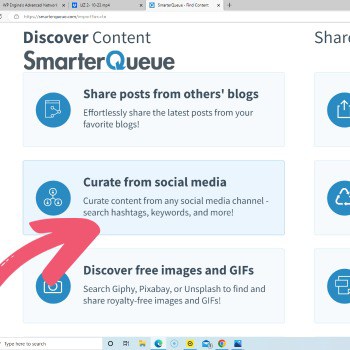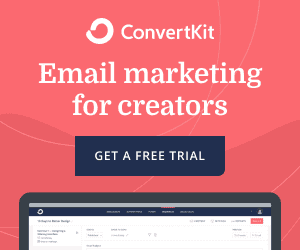Introduction to Life Coaching as an Online Business
 Definition of Life Coaching
Definition of Life Coaching
Imagine exploring new heights of awareness, where you guide others to their highest potential. That’s what life coaching is all about. Life coaching is helping individuals chart a course from where they are now to where they aspire to be. Whether it’s about enhancing careers, improving relationships, or achieving overall well-being, life coaching empowers people to navigate life’s complexities (BetterUp). As a life coach, your role involves analyzing current situations and crafting a plan of action to create meaningful, positive change in your clients’ lives. It’s a journey of transformation, packed with goal-setting and skill-building.
Benefits of Starting an Online Coaching Business
Now, why take this rewarding path online? Well, the perks are plentiful! You’re not confined to a physical location with an online coaching business. You can reach a global audience, meaning the potential for more clients and increased revenue. Imagine conducting sessions from the comfort of your home or a cozy coffee shop while impacting lives worldwide. Online coaching often leads to high-profit margins since it requires minimal overhead costs like room rentals (Heights Platform).
Moreover, it’s about flexibility and convenience—for both you and your clients. Busy professionals, single parents, or individuals with tight schedules find it easier to commit to coaching sessions that fit seamlessly into their lives.
Overview of the Essential Steps Covered in the Article
Starting a life coaching business online involves several crucial steps, each one vital to your success. Here’s a sneak peek at what’s ahead:
 Identifying Your Target Market – Learn the art of niche selection, research potential client demographics, and understand their needs and pain points.
Identifying Your Target Market – Learn the art of niche selection, research potential client demographics, and understand their needs and pain points.- Developing Your Coaching Expertise and Credentials – Discover how to gain relevant certifications, build experience with practice clients, and continuously hone your skills.
- Creating a Strong Personal Brand – Craft your unique coaching philosophy and mission statement while developing a consistent visual identity across platforms.
- Building an Effective Website – Understand the essential elements of an engaging coaching website optimized for users and search engines.
- Establishing Your Online Presence – Leverage social media platforms, create valuable content, and engage with potential clients online.
- Developing Your Coaching Programs and Services – Structure your coaching packages, create digital products, and determine the best pricing models.
- Implementing Effective Marketing Strategies—Learn how to generate leads, from content marketing plans to email nurturing and paid advertising.
- Setting Up Business Operations involves Choosing the right technology and tools, establishing client management processes, and handling legal and financial aspects.
- Generating and Nurturing Qualified Leads – Create lead magnets, follow-up strategies, and convert leads into paying clients.
Ready to dive in? Let’s embark on this journey to transform lives and build a thriving online coaching business! 😊
Identifying Your Target Market
Importance of Niche Selection
Imagine navigating through a crowd where everyone looks the same. Wouldn’t it be challenging to stand out? That’s why niche selection is pivotal for life coaches. Choosing a niche helps you carve a unique identity and attracts clients who resonate specifically with your offerings. Imagine planting your flag in uncharted territories where only you have the expertise.
A well-defined niche and business differentiation strategy allows you to target a specific group of people, increasing the chances of your services being in demand because they address particular needs. For example, executive coaching often demands a premium as it caters to senior leaders and high-performance individuals within organizations. Paperbell.
Researching Potential Client Demographics
Now, let’s get to the nitty-gritty—client demographics. These are the basic stats and facts about your potential clients, like age, gender, income, and location.
Client Demographics: Many coaching clients are often in the 35+ age bracket, but specific data on the 35-44 age range is not confirmed. LovePixelAgency. AND, according to Dr. Claire Zammit, 70% of the coaching market is WOMEN!
Use a client avatar to paint a vivid picture of your ideal client. This is a detailed profile combining demographic and psychographic data. For instance, you might identify that your target is a 40-year-old woman navigating a career transition and looking for more fulfillment in her professional life Linkedin.
Understanding Client Pain Points and Needs
 Let’s get real for a moment. Clients come to you because somethin’ isn’t right in their lives. That “something” is their pain point. Clients’ pain points could be anything causing them frustration or discomfort, such as feeling stuck in their career, lacking personal fulfillment, or facing challenges in balancing work and life FourStreamsCoaching.
Let’s get real for a moment. Clients come to you because somethin’ isn’t right in their lives. That “something” is their pain point. Clients’ pain points could be anything causing them frustration or discomfort, such as feeling stuck in their career, lacking personal fulfillment, or facing challenges in balancing work and life FourStreamsCoaching.
Understanding these pain points means putting yourself in their shoes. For example, if you’re coaching new entrepreneurs, common pain points might include fear of failure, lack of business knowledge, or overwhelm from trying to do everything on their own NudgeCoach. Your job is to offer solutions tailored to these precise issues, making your service indispensable.
Armed with a clear niche and a deep understanding of your clients’ demographics and pain points, you’re well on your way to making meaningful connections that last. So, grab that magnifying glass and dig deep into the specifics of who you are meant to serve.
Let’s Explore Life Coaching Niches
Diving into life coaching, one of the most crucial steps is identifying your niche. A well-defined niche helps you stand out and attracts clients who resonate with your expertise. Here are 10 top examples of life coaching niches to consider:
 Executive Coaching: Focus on helping senior leaders and high-performance individuals enhance their leadership skills and achieve organizational goals.
Executive Coaching: Focus on helping senior leaders and high-performance individuals enhance their leadership skills and achieve organizational goals.- Career Transition Coaching: Guide individuals through career changes, helping them find fulfillment and success in new professional paths.
- Health and Wellness Coaching: Support clients in achieving their health goals, whether it’s weight loss, fitness, or overall well-being. Add your health and wellness coaching business listing here.
- Relationship Coaching: Assist individuals or couples in improving their personal relationships and communication skills.
- Entrepreneurial Coaching: Empower aspiring entrepreneurs to overcome challenges and build successful businesses.
- Mindfulness and Stress Management Coaching: Help clients manage stress and cultivate mindfulness for a balanced life.
- Financial Coaching: Guide clients in managing their finances, budgeting, and achieving financial independence.
- Spiritual Coaching: Support individuals in exploring their spirituality and finding deeper meaning in life. Add your Spiritual Coaching Business Listing here.
- Life Purpose Coaching: Help clients discover their life purpose and align their actions with their core values. Add your life coaching business listing here.
- Parenting Coaching: Help parents navigate the challenges of raising children and foster positive family dynamics.
Choosing the right niche is about aligning your passion and expertise with the needs of your target audience. Focusing on a specific area can create a more impactful and rewarding coaching practice.
Developing Your Coaching Expertise and Credentials
So, you’ve zeroed in on your target market and their needs. It’s time to build your credibility and expertise as a coach. Trust me; this isn’t something you can skip over. To become a sought-after online life coach, let’s dive into the key steps you must follow.
Obtaining Relevant Certifications and Training
First things first, getting certified is not just about adding letters after your name. It’s about deepening your understanding and honing your skills. While the life coaching industry is unregulated, certifications can set you apart. Programs like mindbodygreen’s life coach certification, Life Coach Training Institute and iPEC offer comprehensive coursework that can prepare you for various coaching scenarios. Notably, institutes like these are designed to give you practical and theoretical skills, which will undoubtedly enhance your client sessions.
Building Experience Through Practice Clients
Experience is the best teacher, and there’s no shortcut here. Gaining experience in coaching involves a combination of practice clients, formal training, certifications, and ongoing professional development.. Someone who can guide you, provide feedback, and help you navigate coaching’s real-world intricacies. Offer free or discounted sessions to your existing network—friends, family, or colleagues. This allows you to gather testimonials, which can boost credibility. Active engagement in communities, both online and offline, also drives exposure and practice opportunities.
Another tip? Keep a journal of your sessions with practice clients. Note what worked, what didn’t, and areas for improvement. This reflection can significantly enhance your coaching capabilities.
 Continuous Learning and Skill Development
Continuous Learning and Skill Development
Being a life coach means committing to lifelong learning. Stay updated with the latest research, trends, and techniques in the coaching industry. Platforms like Coursera and Linkedin Learning offer courses on coaching skills tailored to various learning styles—videos, interactive courses, articles, and more. Think of it as constantly sharpening your saw to ensure you provide the best guidance possible.
Additionally, attending workshops, seminars, and conferences helps you network and gain fresh insights. Join professional coaching associations to access resources and mentorship opportunities. Above all, remain curious and open to learning. Being adaptable and continuously improving can set you apart in this evolving field.
As we wrap up this section, remember that obtaining certifications, gathering real-life experience, and committing to continuous learning are foundational pillars for your coaching success. Now, let’s move on to crafting a strong personal brand—it’s time to let your unique philosophy shine! 😊
Life Coaching+
A modern, efficient approach to life coaching that will help you stand out in the field, all in just 12 weeks.
What Sets mbg Apart?
Creating a Strong Personal Brand
 Defining Your Unique Coaching Philosophy and Approach
Defining Your Unique Coaching Philosophy and Approach
Imagine exploring new heights of awareness and transforming lives through your unique coaching philosophy. Your coaching philosophy is your doctrine—a set of beliefs and values guiding your coaching strategies, decisions, and actions. Understanding your core coaching values and how they intersect with your niche is essential. This philosophy showcases how you’ll work with future clients and the methods you’ll implement, attracting the right people to your practice.
Some inspiring coaching philosophies might include:
- Empowering Environment: “I believe a positive environment is crucial for my coachees to challenge themselves and realize their full potential. Coaching is about unlocking a growth mindset and embracing mistakes while consistently aiming for better” (Quenza).
- Autonomous Coaching: “This philosophy respects the client’s freedom and autonomy. Coaches following this principle ensure they don’t influence their coachee with their agenda, empowering clients to discover their own answers” (Paperbell).
By aligning your coaching with your core values, such as empathy, honesty, and integrity, you create a solid foundation for your practice.
 Crafting a Compelling Personal Story and Mission Statement
Crafting a Compelling Personal Story and Mission Statement
Next up is the art of storytelling, which makes your brand relatable and memorable. Your personal story should explain what brought you into life coaching and highlight the experiences shaping your coaching style. It’s about being authentic and sharing your vulnerabilities to build an emotional connection with your audience (Linkedin).
A compelling mission statement ties your story to your coaching purpose, like these examples from Lovepixel Agency:
- “To inspire personal growth and transformative change, empowering clients to redefine their lives and pursue their dreams.”
- “Promoting deeper self-awareness and living in the moment.”
Remember, your mission statement is your commitment to your clients and should reflect your core values and coaching philosophy.
 Developing a Consistent Visual Identity
Developing a Consistent Visual Identity
A strong visual identity is the icing on the cake. It’s how you present yourself across all platforms, making you instantly recognizable. Here’s how to craft a consistent visual identity (Spectrio):
- Color Palette: Use color psychology to choose shades that reflect your brand’s identity.
- Typography: Select two complementary fonts.
- Imagery: Define your choices to align with your brand message.
- Logo: Ensure it matches your philosophy and style.
- Branding Guide: Create a guide to keep everything consistent.
Consistency across all touchpoints—online or offline—is crucial for building a cohesive brand identity that resonates with your audience (Life Purpose Institute).
With your unique philosophy, compelling story, and consistent visuals, you’re now ready to leave a lasting impression. This solid foundation will serve you well as you build your online presence and connect with your audience meaningfully.
Build a magnetic personal brand that multiplies your income, impact, and influence
Join Mind Valley’s Gerard Adams in an 18-day program that unmasks the real you and transforms your business or career through the power of your unique personality and presence
Building an Effective Website
 Essential Elements of a Coaching Website
Essential Elements of a Coaching Website
Imagine kicking off your online coaching journey with a website that screams, “Welcome! Let’s transform lives together!” Your website is essentially your digital handshake—so let’s make it unforgettable.
- Engaging Homepage: Your homepage should clearly state who you are and what coaching services you offer. Think of it as your virtual first impression 😊.
- About Page: Show a bit of your personality here. Share your journey, philosophy, and what drives you to coach others 😇.
- Services and Pricing: Transparency is critical. Detail your coaching services, packages, and pricing upfront. People appreciate knowing what they’re signing up for.
- Blog: Keep it active! Regularly update your blog with insightful articles that showcase your expertise. This will engage visitors and boost SEO.
- Calls-to-Action (CTAs): Use clear CTAs on every page to guide visitors’ journey through your site. Whether scheduling a consultation or signing up for a newsletter, make it easy to take the next step.
- Scheduler/Calendar Booking: Simplify clients’ booking process with a user-friendly scheduling tool. The easier you make it, the better 🙌. Check out Acuity Scheduling (my favorite scheduling app for life coaches) here.
Optimizing for Search Engines and User Experience
Getting noticed on Google is like landing a prime spot on a bustling street. Search Engine Optimization (SEO) is essential to this.
 Descriptive URLs: Use clear, descriptive URLs. For example, www.yourcoachingwebsite.com/life-coach-services is way better than www.yourcoachingwebsite.com/page1.
Descriptive URLs: Use clear, descriptive URLs. For example, www.yourcoachingwebsite.com/life-coach-services is way better than www.yourcoachingwebsite.com/page1.- Quality Content: Craft high-quality, keyword-rich content that resonates with your potential clients’ search terms. Google is all about relevance and quality 🥇. Learn More.
- Mobile Friendly: Ensure your site looks great and functions well on mobile devices. A significant number of potential clients will visit from their phones.
- Header Tags and Meta Descriptions: Optimize title tags, meta descriptions, and header tags. These on-page elements are crucial for helping search engines understand your content and its relevance.
- Loading Speed: Nobody likes a slow website. Optimize images and use a reliable hosting service to ensure yours is quick to load. (If you opt for a WordPress website, I highly recommend WPEngine.com. I’ve been an avid user since 2012.
 Incorporating Client Testimonials and Success Stories
Incorporating Client Testimonials and Success Stories
Nothing speaks louder than happy clients. Their stories can be the magic potion that persuades potential clients to choose you.
- Build Trust: Client testimonials build trust by offering social proof. Someone’s positive experience can be the tipping point for a new client deciding to work with you Learn More.
- Highlight Success: Showcase tangible results and transformations. Highlight specific improvements or achievements your clients have experienced. It makes it real and relatable.
- Use Stories: Encourage clients to share their journey. Storytelling connects on a deeper level, fostering an emotional bond Learn More.
- Diverse Formats: Use a mix of written, video, and audio testimonials. Different formats appeal to other people, and videos add a personal touch Discover More.
Armed with these essentials, your website will attract visitors and convert them into clients eager to embark on their transformation journey with you.
Next up, let’s amplify your reach and connect with a broader audience.
Establishing Your Online Presence
Leveraging Social Media Platforms for Visibility
Imagine diving into the world of social media—like a vibrant marketplace buzzing with energy! 🌟 Social media platforms are your stage to showcase your life coaching skills and connect with potential clients worldwide. It’s not just about being present; it’s about being visible. Think of each post as a beacon signaling your expertise to those seeking guidance.
Platforms like Facebook, Instagram, Linkedln, and even TikTok can dramatically amplify your reach.
Here’s how:
- Consistency is Key: Post regularly to stay on your audience’s radar. Use a mix of content types like videos, inspirational quotes, and client success stories to keep it fresh.
- Engage Actively: Reply to comments, engage in relevant conversations, and join groups where your target audience hangs out.
- Showcase Your Expertise: Share valuable insights, tips, and advice related to life coaching. This proves your knowledge and builds trust with your audience.
 Creating Valuable Content to Showcase Expertise
Creating Valuable Content to Showcase Expertise
Alright, let’s create content that dazzles and delights! Crafting valuable content isn’t just about flaunting your expertise—it’s about educating and empowering your audience. Think of content creation as a way to extend your coaching beyond the confines of one-on-one sessions.
Here’s a game plan:
- Blog Posts & Articles: Write informative blog posts that address common issues your target clients face. For instance, “5 Tips to Overcome Procrastination” or “How to Find Your Life’s Purpose” are evergreen topics.
- Videos & Webinars: Create videos or host webinars where you delve deep into specific topics. Video content, in particular, can create a personal connection with your audience.
- Ebooks & Guides: Free downloadable content, like ebooks or comprehensive guides, can serve as lead magnets and showcase your depth of knowledge.
Engaging with Potential Clients through Online Communities
Lastly, let’s talk about the magic of online communities. Engaging in these spaces isn’t just about promoting your services—it’s about building relationships and nurturing trust. Picture this: you’re in a bustling virtual café, mingling with people who could benefit from your wisdom. It’s comfortable, engaging, and authentic.
Start here:
- Join Relevant Groups: Look for Facebook groups, Linkedln groups, or forums related to life coaching, self-improvement, or personal development.
- Be Helpful and Active: Answer questions, share valuable insights, and offer support. Your genuine involvement will naturally lead people to see you as an authority in your field.
- Host Live Sessions: Platforms like Instagram Live or Facebook Live can be a great way to interact with your audience in real-time, answer their questions, and offer mini-coaching sessions.
With these strategies, you can build a robust online presence that attracts and nurtures potential clients. Keep the momentum going, stay genuine, and continue sharing your light with the world! 😊
By actively leveraging social media, creating valuable content, and engaging in online communities, you lay a strong foundation for your online coaching business.
Build a magnetic personal brand that multiplies your income, impact, and influence
Join the founder of the global Daybreaker movement as you learn how to build a Dream Community that lights up your world with deep connection and belonging. Radha Agrawal has built thriving global communities exceeding 500,000 members. In this program, she’ll guide you to create your own community of any size around any idea, business, or value system.
GET STARTED TODAY!
Developing Your Coaching Programs and Services
Structuring One-on-One and Group Coaching Packages
Imagine setting sail into the realm of coaching, where your clients are the eager passengers aboard your yacht of wisdom! 🌊 Structuring your one-on-one and group coaching packages is all about providing smooth, effective journeys for your clients.
 For one-on-one coaching, an effective structure includes:
For one-on-one coaching, an effective structure includes:
- Initial Assessment: Start with an initial assessment to understand client goals (360Learning).
- Regular Sessions: Plan 45-60 minute sessions weekly, bi-weekly, or monthly (Create Coaching Consulting).
- Ongoing Support: Offer continuous support via emails, texts, or platforms like Voxer in between sessions (Notta.ai).
- Customized Plans: Tailor each session to the client’s progress and needs, adjusting goals as necessary (Thinkific).
Group coaching involves navigating a larger vessel with more passengers. Keep these in mind:
- Ideal Group Size: Maintain a group of 10-20 participants to ensure productive interaction (Simply Coach).
- Flexible Structure: Design a common purpose but allow individual goals (Mighty Networks).
- Interactive Sessions: Include activities that foster group engagement, learning, and growth (Simply Coach).
Creating Digital Products and Courses
Consider this: Your coaching wisdom can reach even beyond live sessions! Enter digital products and online courses.
Digital products could be audio recordings, e-books, or worksheets that add value to your coaching offerings. Picture your clients engaging with insightful materials whenever they need a boost.
Online courses enable structured, asynchronous learning. Here’s how to map out a course:
- Identify Key Content: Curate core topics that resonate with your target audience (Instructor Academy).
- Organize Modules: Break down the content into manageable modules that build on each other (Instructor Academy).
- Engage with Activities: Incorporate interactive elements like quizzes, discussion forums, and assignments to ensure active learning (Simply Coach).
Determining Pricing Models and Payment Options
Now, let’s talk about getting paid—yes, your hard work deserves fair compensation! 🎉
Hourly Rates: Ideal for beginners, this model is straightforward but can limit scalability (Authentic Marketer).
Monthly Packages: Offer more predictable income with value-based pricing. A basic package might include weekly sessions and email support, whereas premium packages could add bonus resources or additional support (Authentic Marketer).
Tiered Pricing: Provide clients with multiple options. For instance:
- Bronze: Basic sessions only.
- Silver: Includes sessions plus access to a resource library.
- Gold: Full package with sessions, resources, and between-session support (Authentic Marketer).
Consider factors such as your expertise, market demand, and client affordability. You might also implement a sliding scale for inclusivity.
Conclusion
By thoughtfully structuring your coaching packages, creating engaging digital resources, and setting appropriate pricing models, you’re setting up a successful online coaching business ready to transform lives. Your yacht is ready; it’s time to embark on the voyage of transformative coaching! 🚀
 Discover some top online course delivery platforms:
Discover some top online course delivery platforms:
Build online courses that transform, sell, and make an impact
Master the art of building bestselling online courses with two of today’s leading course creators: Jimmy Naraine, who has trained 350,000+ people on Udemy, and Mindvalley Founder Vishen, whose courses have earned nearly $500,000,000 in revenue.
Get Started Today!
Implementing Effective Marketing Strategies
 Developing a Content Marketing Plan
Developing a Content Marketing Plan
Imagine exploring new heights of awareness through strategic content marketing 🌟! Content marketing is your megaphone, amplifying your message to attract and engage your target audience. By sharing valuable insights, you demonstrate your expertise and build trust.
Start by identifying your audience’s interests and pain points. Next, create a content calendar packed with blog posts, articles, videos, and podcasts that address these points. For example, if your niche is career coaching, write articles like “5 Ways to Ace Your Job Interview” or produce a podcast on “Overcoming Workplace Stress.” The goal is to provide value that aligns with your audience’s needs.
Consistency is key. Maintain a steady flow of quality content. Use tools like HubSpot or Trello to organize your schedule. Remember, engaging content is not all about selling; it’s about establishing a connection. Whether it’s through a heartfelt blog post or a relatable video, make sure your voice shines through 😊.
Utilizing Email Marketing for Lead Nurturing
 Next up, email marketing! 🍀 Building an email list is like nurturing a garden where each lead is a potential blossoming client. Start by creating an enticing opt-in offer. This can be a free eBook, a helpful checklist, or an insightful webinar. For instance, offer a guide titled “10 Steps to Achieving Work-Life Balance.”
Next up, email marketing! 🍀 Building an email list is like nurturing a garden where each lead is a potential blossoming client. Start by creating an enticing opt-in offer. This can be a free eBook, a helpful checklist, or an insightful webinar. For instance, offer a guide titled “10 Steps to Achieving Work-Life Balance.”
Once subscribers opt-in, the real magic begins. Craft a series of welcome emails to introduce yourself, share your story, and provide valuable content. Use platforms like Mailchimp or ConvertKit for managing your email campaigns.
Segment your list based on interests and engagement levels to send personalized content. Regularly share updates, tips, and exclusive offers. Always include a clear call-to-action, such as booking a free consultation or joining a webinar. Email marketing is a fantastic way to keep your audience engaged and inch them closer to becoming clients.
Exploring Paid Advertising Options
 Let’s dive into the exciting world of paid advertising! ⚡️ Paid ads can give your coaching business the visibility boost it needs. Platforms like Facebook, Instagram, and Google Ads offer targeted advertising options that can reach your specific audience.
Let’s dive into the exciting world of paid advertising! ⚡️ Paid ads can give your coaching business the visibility boost it needs. Platforms like Facebook, Instagram, and Google Ads offer targeted advertising options that can reach your specific audience.
Begin by setting a clear objective. Do you want to increase website traffic, generate leads, or boost brand awareness? For instance, use Facebook Ads to promote a free webinar or Instagram Ads to showcase client success stories.
Create compelling and visually appealing ads. Use high-quality images or videos and write captivating copy that speaks directly to your audience’s needs. Budget wisely and start with smaller campaigns, analyzing performance and tweaking as needed. Remember, the key is to test, measure, and optimize.
To sum it up, implementing effective marketing strategies through content marketing, email campaigns, and paid advertising can significantly elevate your online coaching business. Keep experimenting, learning, and evolving as you go.
Setting Up Business Operations
Mastering the intricacies of setting up business operations is a cornerstone for any successful online life coaching business. Imagine envisioning seamless processes that support your flow and enhance your client’s experience. Let’s break down these steps into manageable, engaging bites.
Choosing the Right Technology and Tools
Technology is the backbone of online coaching. The right tools can streamline your operations, making day-to-day tasks smoother and more efficient. Some essential tools and platforms include:
 Video Conferencing: Platforms like Zoom and Skype are great for conducting coaching sessions, ensuring crystal-clear communication.
Video Conferencing: Platforms like Zoom and Skype are great for conducting coaching sessions, ensuring crystal-clear communication.- Scheduling: Acuity Scheduling by SquareSpace (my go-to scheduling app as it’s a great marketing tracking tool) simplifies booking and managing appointments, removing the back-and-forth email hassle.
- Client Management: Notion, Ninety or Trello can help you keep track of client progress and notes.
- Email Marketing: Email marketing tools: Kit (formerly known as ConvertKit) is useful for email marketing as are many other email service providers like MailChimp, Aweber, MailerLite, etc.
- Content Creation: Canva helps you design professional visuals to promote your brand and services.
Selecting these tools ensures you can provide a top-notch client experience while keeping your workflow efficient.
Establishing Client Onboarding and Management Processes
A well-structured onboarding process sets the tone for a successful coaching relationship. Here’s how to create a stellar onboarding experience:
- Discovery Call: Start with a discovery call to understand the client’s goals, challenges, and expectations. Use this to align on mutual expectations Self Leadership Global.
- Welcome Package: Create a welcome email series with a personalized welcome message, an introduction to your coaching style, essential resources, and next steps.
- Enrollment Details: Follow-up emails can enhance customer engagement, but the provided evidence does not establish their necessity in relation to payment options. Self Leadership Global.
- First Steps: Encourage immediate actions, like joining a private Facebook group or completing a new client checklist. This helps clients feel engaged and valued from the get-go.
Consistency in these steps builds trust and sets the stage for a fruitful coaching journey.
 Handling Legal and Financial Aspects
Handling Legal and Financial Aspects
Last but certainly not least, let’s navigate the uncharted waters of legal and financial setup. Properly addressing these areas will save you headaches down the line:
- Business Structure: Consider forming a Limited Liability Company (LLC). It’s simple to set up and protects your personal assets Paperbell.
- Contracts: Use legally vetted coaching contracts to ensure you and your clients are on the same page Sam Vander Wielen.
- Insurance: While not always required, business insurance can add an extra layer of protection.
- Financial Planning: Develop a budget that covers startup costs, ongoing expenses, and emergency funds. Financial management tools: Tools like Xero, Expensify, and FreshBooks can help manage finances. Kruze Consulting.
By meticulously choosing the right tools, crafting an effective onboarding process, and handling legalities and finances carefully, you’re setting a solid foundation for a thriving online coaching business.
Now, let’s continue building this amazing journey.
Generating and Nurturing Qualified Leads
Alright, dream chasers! You’ve built your coaching website, established your brand, and polished your credentials. Now, let’s dive into the crucial task of generating and nurturing qualified leads—a lifeline for any online coaching business. 🌟
Creating Lead Magnets and Opt-in Offers
Think of your lead magnet as a charming digital handshake. It’s an enticing offer designed to capture your audience’s interest and, most importantly, their email addresses. Here are some magnetic ideas to get you started:
 Quizzes: Everyone loves a fun quiz. Create one that assesses a potential client’s readiness to transform a specific area. This works wonders for engagement. Check out Interact for creating lead gen quizzes.
Quizzes: Everyone loves a fun quiz. Create one that assesses a potential client’s readiness to transform a specific area. This works wonders for engagement. Check out Interact for creating lead gen quizzes.- Checklists: Simple yet effective checklists provide actionable steps for your clients’ common challenges.
- Ebooks and Guides: Offer an in-depth resource that provides value, like a guide to overcoming common life hurdles or achieving specific goals.
- Templates and Workbooks: Clients can use practical tools immediately, like goal-setting templates or daily productivity workbooks WiseOwlMarketing.
Remember to keep your lead magnet relevant to your audience’s pain points, providing real value while creating a desire for more Dealfront.
Implementing Effective Follow-up Strategies
Capturing leads is just the first step. Following up effectively is where the magic happens 💫. Here’s how to keep the conversation going:
- Personalized Follow-up Emails: Send a thank-you email with a preview of what’s next. This could include upcoming newsletters, a free consultation offer, or additional resources related to their interests Linkedin.
- Session Summaries and Reminders: Post-session, send a recap email highlighting key points discussed, action items, and the date of your next meeting InstituteOD.
- Progress Trackers: Use tools like tracking sheets or progress journals to help clients monitor their progress. This encourages a sense of achievement and continuity CoachFoundation.
 Converting Leads into Paying Clients
Converting Leads into Paying Clients
Now, let’s turn those warm leads into paying clients:
- Initial Contact: Reach out promptly after your lead magnet captures their information. A friendly introduction goes a long way!
- Qualify the Lead: Identify which leads will most likely convert by understanding their needs and readiness to invest CallPage.
- Present Solutions: Offer a personalized solution during your free consultation or discovery call. Tailor your pitch to address their specific pain points and goals.
- Handle Objections: Be prepared to address any concerns or objections. Show empathy and provide clear, convincing counterpoints.
- Follow-Up: Persistence pays off! Use multiple channels to nurture leads—emails, phone calls, or even social media touchpoints. Always end with a clear call-to-action, encouraging them to take the next step ABrilliantTribe.
Recap of Key Steps to Start an Online Life Coaching Business
Whew! You’ve come a long way. Let’s quickly recap the essential steps:
- Build Your Brand: Establish your unique philosophy and story.
- Develop Expertise: Get certified as a life coach and continually hone your skills.
- Create a Web Presence: Your website is your digital business card.
- Generate Leads: Use compelling lead magnets to attract your ideal clients.
- Follow-Up and Convert: Engage with leads and turn them into paying clients.
Importance of Continuous Improvement and Adaptation
The journey doesn’t end here. Continuous learning and adaptation are key. Always seek feedback, stay updated with industry trends, and refine your offerings. Personal growth is the heart of coaching, and it’s essential for your business too.
Remember these strategies, and you’ll be well on your way to nurturing a thriving client base. 🌱✨
Conclusion: Taking Action and Growing Your Business
 Immediate Actions for Success
Immediate Actions for Success
Taking the plunge into online life coaching might seem daunting, but it’s also gratifying. The steps you’ve read through are designed to equip you with the tools and knowledge to start confidently. Now, it’s time to put this plan into action!
Start by revisiting your coaching niche and target market. Remember when you first dreamed of becoming a life coach? Think about the specific group of people you most want to help and refine your niche accordingly. Your expertise and passion will set you apart and attract the right clients.
Leveraging Your Brand
Next up, harness the power of your unique personal brand. Your story, philosophy, and approach are what will make you stand out in a crowded market. Share your journey and mission through engaging content, and keep your messaging consistent across all platforms. When people see your authenticity, they’ll be more likely to connect with you on a deeper level.
Getting Your Website and Online Presence Ready
If you haven’t yet, prioritize building a sleek and functional website. Ensure it’s optimized for search engines and user-friendly, making it easy for visitors to understand what you offer and how to contact you. Incorporate testimonials to provide social proof, which will be crucial in building trust with potential clients. Also, leverage your social media presence by sharing valuable insights and engaging with your audience regularly.
Structuring Your Coaching Offerings
Don’t forget to outline your coaching programs and services. Whether it’s one-on-one sessions, group coaching, or digital courses, make sure each offering is well-structured and provides clear value. Set competitive pricing that reflects your worth and offers flexible payment options to make it easier for clients to commit.
Marketing and Operations
Develop a marketing strategy tailored to your audience. Content marketing, social media, and email campaigns are fantastic ways to reach potential clients. Tools like Mailchimp or HubSpot can help streamline your marketing efforts. Choose operational tools that will make running your business smooth, from scheduling software like Calendly to client management systems that keep everything organized.
Empowering Yourself and Continuous Improvement
Finally, embrace continuous improvement. Seek feedback from clients and peers, and always look for ways to enhance your coaching skills. Consider joining professional coaching networks or participating in webinars and workshops. The learning never stops, and your business will thank you for it.
Ready, Set, Go!
Now is the time to take everything you’ve learned and apply it! Online life coaching is waiting for passionate, dedicated individuals like you. Remember to stay true to your mission with each step you take and let your unique voice shine through. Your journey has just begun, and the potential for growth and impact is limitless. Keep pushing forward, and amazing things will happen! 😊
By following these steps, you are well on your way to establishing a successful online life coaching business. The process is dynamic, and adapting to changes will be essential for long-term success. Always be open to learning and growing, and your business will flourish.
Developing Your Coaching Expertise and Credentials
When considering what qualifications you need to be a life coach, it’s important to note that the coaching industry is largely unregulated. This means there are no formal requirements to start practicing as a life coach. However, obtaining a certification can significantly enhance your credibility and effectiveness. Many aspiring coaches choose to enroll in reputable training programs that offer comprehensive coursework and practical experience. These programs not only equip you with essential coaching skills but also provide a structured path to gaining confidence and competence in your practice.
There are various routes to becoming a certified life coach. You might opt for university courses, private training programs, or even apprenticeships. Each path offers unique benefits, allowing you to tailor your learning experience to your personal and professional goals. For instance, programs accredited by organizations like the International Coaching Federation (ICF) are highly regarded and can open doors to a broader client base. While certification is not mandatory, it can set you apart in a competitive market, demonstrating your commitment to professional development and ethical coaching practices.
In addition to formal education, gaining hands-on experience through practice clients is invaluable. Offering free or discounted sessions to friends, family, or colleagues can help you refine your techniques and gather testimonials. This real-world experience is crucial for building your reputation and honing your skills. Remember, continuous learning and adaptation are key in this evolving field. By staying updated with the latest coaching trends and methodologies, you ensure that your services remain relevant and impactful.
Life Coaching+
A modern, efficient approach to life coaching that will help you stand out in the field, all in just 12 weeks.
What Sets mbg Apart?
How much money can you make as a life coach?
When considering how much money you can make as a life coach, it’s important to recognize that earnings can vary widely based on several factors.
On average, life coaches in North America earn around $67,800 annually, but this figure can fluctuate depending on experience, specialization, and geographic location. For instance, life coaches in Hawaii tend to earn more, with an average salary of $66,081, while those in Florida might see lower averages around $44,737.
The potential for higher earnings increases significantly when coaches offer specialized services, develop group coaching programs or online courses and books or cater to niche markets, allowing them to charge premium rates.
Moreover, the structure of your coaching business can significantly influence your income. Many successful life coaches recommend pricing services in packages rather than one-off sessions. This approach provides clients with a comprehensive coaching experience and ensures a steadier income stream.
For example, selling 10 coaching packages at $10,000 each can be more lucrative and manageable than conducting 1,000 individual sessions at $100 each.
Additionally, diversifying your offerings by incorporating group coaching, workshops, or digital products can further enhance your earning potential, making life coaching a financially rewarding career path.
Join The Impact Tribe

Jessie May Keezle Brand Marketing Strategist, Coach, and Consultant for The Impact Tribe
Get off the roller coaster of not knowing where to focus or what to do to grow your audience, expand your impact, and build a brand people will rally behind!
The path to achieving a thriving business isn’t easy, but so many experts tell you it CAN be if you only do exactly what they do! But you wouldn’t be here if their well-laid maps had led you to the destination of your dreams, right?
Here, in The Impact Tribe, you’ll learn a tried-and-true, timeless process designed for purpose-driven entrepreneurs like you to reach your next level—and tap into your authentic self to get there!
With courses, community, coaching, and resources, you’ll have everything you need to build a business that embodies your purpose.
Join Us at The Impact Tribe!
Elevate Your Brand with Multiple Revenue Streams & Strategies
Embark on a transformative journey with TheAthenaArena.com, enthusiastically championing dynamic “Wonder Woman” brands supporting the vibrant Colorado Rocky Mountain communities from Aspen to Vail, Snowmass, Basalt, Carbondale, and Glenwood Springs; we specialize in elevating “Wonder Woman” brands worldwide.! We deliver innovative content and online business development strategies and SEO-smart WordPress solutions to life and health coaches, business innovators, and therapists keen on building compelling personal brands and lucrative revenue streams.
Are you prepared to create change and captivate more audiences?
Book your free 30-minute consultation, feature your business in our search-driven niche directory, and discover a treasure trove of resources on our sister site, TheMindBodySpiritNetwork.com.
“Unlock top-tier resources and innovative ideas to grow your practice. Discover tools, and insightful strategies to optimize your income streams.” Get started today!
Discover more from The Athena Arena with Liz Gracia
Subscribe to get the latest posts sent to your email.










Leave a Reply